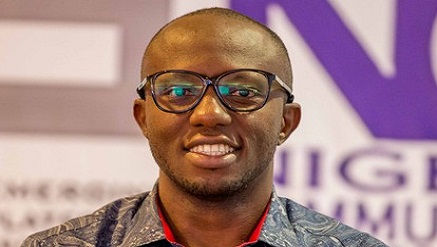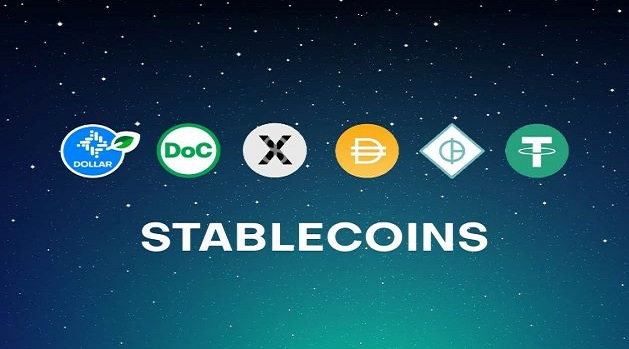E-Business
Uninterrupted Power Supply and the Tech Ecosystem

One of the most frustrating experiences earliest stage startups would be dealing with at the moment is most likely power supply. This is why many of them use the option of hubs and co-working spaces rather than renting their own office.
In my case, I may have been pretty successful in my craft but one behind-the-scene question is, would the situation have been different if I had not diverted funds meant for a car to acquire an inverter?
Without knowing it then, now I realize that move was the game changer for me, it meant I could stay in the trenches a little longer without the heavy burden of fueling a generator but the reality is that how many startups can truly afford to acquire an inverter especially those who are struggling to survive or reside far from hubs?
In my opinion, there can be no technological advancement or innovation without steady power supply and in the same vein, no power or electricity ecosystem (generation, distribution, billing or what have you) without modern technology – it is absolutely impossible in both cases, they are partners in progress.
The world will be forever grateful to Thomas Edison for Electricity because it became the fulcrum on which many other inventions, chief of which is the technology revolution (that has now turned the world into a global village) grew. Today, within the twinkling of an eye, you can transact and close business deals with anyone, anywhere in the world, without leaving the comfort of your home or office and its all thanks to technology.
Beyond what we now call the startup ecosystem, is the SME sector already employing millions of people and has the capacity to accommodate a lot more from Welding workshops, Barbing saloons, Hair dressing saloons, Internet Café, Fashion designers, Cold room operators and lots more.
All of these guys will contribute to economic growth one way or the other, if they have access to stable power supply to run their businesses seamlessly.
Also, and importantly too, manufacturing will once again boom in Nigeria as factories will be able to run their machines at cheaper electricity rates compared to the exorbitant cost of running them presently on diesel generators. This means that there will be a reduction in the cost of production.
A reduction in the cost of production will drive the prices of produced goods down, thus, making them affordable to the average Nigerian.
Further benefits of fixing the electricity issue in Nigeria is that, as reduction in production costs drives down prices, our products will be able to compete for export, especially in our immediate African market. This can, indeed, be the beginning of Nigeria earning serious foreign exchange from exports.
Exports earnings can improve the strength of the Naira against stronger currencies like the Dollar and save us from the present foreign exchange imbroglio we find ourselves.
From what I understand, those who invested in the power sector are more or less cash-strapped and therefore not able to invest in the process of replacing all the rusty and old equipments. One is tempted to ask; what did the Disco’s think they were buying into when they were bidding for the aspect of PHCN which they bought? Did they inspect the equipment they were buying at all? Did they price down the old equipment they were buying into when they bought, knowing that they have to invest in better equipment? Why should it now be the electricity consumers that should indirectly be funding the Fixed Asset side of the Balance Sheet of the Disco’s by financing their equipment purchase through the continued estimated billing strategy and proposed increase in tariffs? All these questions are begging for answers but I’d leave them for another day.
The truth is that no nation can be truly economically viable if its electricity sector is in the kind of crisis that ours is. I believe laws backing the electricity sector has to be knocked down further allowing more businesses generate and sell excess power to their neighbourhoods. I hear from the grapevine of a Nigerian ranch owner in a particular State in the US, who, not only generates electricity for his entire ranch estate, but sells the excess generation to the State! No wonder the difference is clear with the standard of living over there, compared to what obtains here. The government can take a cue from this and allow any of our brilliant Engineers who is capable to generate electricity have a soft landing. The more, the merrier.
The issue of alternative sources of electricity should also not be discountenanced in seeking to solve the electricity crisis in Nigeria. Technology has provided various other options, such as wind, solar and many more. The government should look at each community and see how best they can be helped to benefit from these alternative sources of electricity, thus, by-passing the Discos.
I expect to see positive changes in the direction of improving the supply of electricity, albeit with the supply of preferable, prepaid (smart) meters, in the nearest future otherwise our Tech ecosystem and other businesses will crawl forever.
So the question is, can we develop our tech ecosystem without uninterrupted power supply?
Yes, I know power may have improved considerably in certain parts of the country but how are we sure it is not a fluke brought about by the rainy season? If you are old enough, then you may have heard this excuse every now and again. Only time will tell though!
CFA is the Founder, www.techsmart.ng and Co-producer/Presenter, Tech Trends on Channels Television
E-Business
Chams Carves Out Subsidiary to Support Africa’s Digital Transformation

Chams Holding Company Plc, (Chams Holdco), digital payments and verification firm, has created a new subsidiary which is expected to strengthen the push for Africa’s digital transformation.

The creation of the new subsidiary, ChamsCorp Plc, which took effect from February 1, was made known in a filing to the Nigerian Exchange Limited , according to an announcement.
Chams said that the new subsidiary, which is its 5th, will give a new dimension to its more than 40 years of work in building the digital ecosystem not only in Nigeria, but across the continent and the rest of the world.
The newly created company will focus on three major aspects, namely the manufacturing of digital devices and development of digital infrastructure and services; data center design, construction and operations, and the development and implementation of AI infrastructure and intelligent systems.
It will also contribute to its parent company’s digital ID, digital verification, and trust services offering.
“For nearly four decades, we’ve enabled trust in transactions and identity. Now, we go furthe”
Chams is expanding into AI, data centre infrastructure, and intelligent systems, building the backbone for Africa’s digital transformation,” the company wrote in a LinkedIn post.
“We are not just participating in the future. We are engineering it,” the message added.
According to the Chams announcement, a decision of its Board of Directors appointed members of the pioneer board of ChamsCorp Plc, with renowned banker Mohammed Bashir Yunusa designated as Chairman.
He is described as a well-known finance expert who specializes in deal structuring, corporate and retail finance, business strategy, digital transformation, and Islamic Finance and Banking.
With more than 10 years of experience in the financial services industry, Yunusa currently serves as head of Consumer and Digital Banking for Non-Interest Banking Retail at Sterling Bank Nigeria, and will also serve as a non-executive director on the board.
“Chamscorp is designed to take our most ambitious ideas to market at speed and scale. As Africa’s digital economy evolves, we are focused on delivering transformative solutions that empower governments, businesses, and citizens alike,” Femi Oyenuga, CEO, Chams, commented on the development.
Chams has over the years played a major role in contributing to Nigeria’s digital ID ecosystem development to facilitate access to financial services.
In 2023, the company Group Chairman publicly stated that in providing such digital services to the Nigerian government, it had incurred debts estimated at $100 million and were planning to change their business model as a result.
E-Business
Nigeria, South Africa Drive Stablecoin Spending in Africa

Africa has emerged as the global frontrunner in stablecoin adoption, with Nigeria and South Africa leading the charge with the fastest adoption rate, as transactions surge across the continent.

This is according to the Stablecoin Utility Report, compiled by YouGov on behalf of fintech firm BVNK.
The study, conducted in partnership with Coinbase and Artemis, surveyed over 4 600 early adopters and crypto-natives in 15 countries across five continents.
It shows people are turning to stablecoins to move money more quickly, securely and affordably – and how this shift in behaviour is becoming a worldwide trend beyond its roots in the Global South.
Stablecoin adoption is accelerating particularly rapidly across Africa in 2026, driven by currency volatility, high inflation and the need for cheaper, faster cross-border payments, it finds.
The Stablecoin Utility Report shows that 79% of African respondents hold stablecoins − the highest ownership rate globally − while 76% say they intend to acquire them in the near future.
Nigeria and SA lead the continent in everyday stablecoin spending, highlighting a shift from holding digital dollars as a store of value, to actively using them for commerce.
The appetite to be paid in stablecoins is even stronger: 95% expressed interest in receiving income via dollar-pegged digital assets, whether for salaries, freelance work or cross-border services, according to the study.
Anthony Yim, co-founder and CEO of crypto research firm Artemis, explains: “We’re experiencing a significant behavioural shift in the way people are using stablecoins.
“Crypto natives and early adopters are fully on board with stablecoins, using them to pay and be paid. This is driving mainstream, global adoption – stablecoin supply has increased 500% over the past five years. Alongside the passage of multiple legislation initiatives in numerous countries, it’s clear we’re experiencing a tipping point.”
From hedge to household spending
Unlike in some developed markets where stablecoins are viewed primarily as a payments upgrade, African users are deploying them as practical financial tools. Key use cases include hedging against inflation, facilitating remittances and funding day-to-day purchases.
The report finds that 92% of African respondents say the condition of their national economy directly affects their stablecoin usage − a reflection of currency volatility, capital controls and high remittance costs across several markets.
Africa also recorded the highest likelihood globally (89%) of users adopting stablecoin-linked debit cards, signalling demand for tighter integration between digital assets and traditional payments.
Infrastructure, not ideology
Taken together, the findings reinforce a broader thesis: stablecoins are evolving beyond a payment method into payments infrastructure, states the report.
For individuals, this means receiving income faster and at lower cost. For businesses, it enables borderless treasury operations and supplier payments. For financial platforms, it opens opportunities to embed stablecoin wallets, debit cards and cross-border settlement into core offerings.
This demand for institutional-grade integration is evident globally, with 77% of survey respondents saying they would open a stablecoin wallet if offered by their primary bank or fintech provider.
As adoption deepens in Africa and regulatory frameworks mature in developed markets, the data suggests stablecoins are no longer a niche crypto product − but a structural layer in the future of global money movement, notes BVNK.
E-Business
Kaspersky Reports 15% Growth in Malicious email Attacks in 2025

According to Kaspersky telemetry, almost every second email – 44.99% of global traffic – was spam in 2025. Spam consists not only of unsolicited emails, but can also include various email threats such as scam, phishing and malware.

In 2025, individuals and corporate users encountered over 144 million malicious and potentially unwanted email attachments, representing a 15% increase compared to the previous year figures.
In 2025, APAC had the largest share of email antivirus detections: it reached 30%, followed by Europe with 21%. Next came Latin America (16%) and the Middle East (15%), Russia and CIS (12%) and Africa (6%). As for individual countries, China had the highest rate of malicious and potentially unwanted email attachments, with the share of email antivirus detections of 14%. Russia ranked second (11%), followed by Mexico (8%), Spain (8%) and Turkey (5%).
Email antivirus detections peaked moderately in June, July and November.
Key trends in email spam and phishing
Kaspersky’s annual analysis has also identified several persistent trends in the email spam and phishing threat landscape that are expected to continue into 2026:
- Combination of various communication channels. Attackers lure email users into switching to messengers or calling fraudulent phone numbers. For instance, scam investment mailings may redirect victims to fake websites, where they are asked to provide their contact information, and then cybercriminals will follow up with a phone call.
- Usage of diverse evasion techniques in phishing and malicious emails. Threat actors frequently try to disguise phishing URLs, for example, with the help of link protection services and QR codes. These QR codes are often embedded directly in email bodies or within PDF attachments, which not only conceals phishing links but also encourages users to scan them on mobile devices, potentially exploiting weaker security measures than corporate PCs.
- Mailings exploiting diverse legitimate platforms. For example, Kaspersky experts discovered a fraudulent tactic that abuses OpenAI’s organisation creation and team invitation features to send spam emails from legitimate OpenAI addresses, potentially tricking users into clicking scam links or dialing fraudulent phone numbers. Additionally, a calendar-based phishing scheme, which originated in the late 2010s, resurfaced last year with a focus on corporate users.
- Refining tactics in business email compromise (BEC) attacks. In 2025 attackers attempted to become even more persuasive by incorporating fake forwarded emails into their correspondence. These emails lacked thread-index headers or other headers, making it difficult to verify their legitimacy within an email conversation.
“Email phishing shouldn’t be underestimated. Our report reveals that one in ten business attacks starts with phishing, with a significant proportion being Advanced Persistent Threats (APTs). In 2025, we saw an increase in the sophistication of targeted email attacks. Even the smallest details are meticulously crafted in these malicious campaigns, including the composition of sender addresses and the tailoring of content to real corporate events and processes.
“The commodification of generative AI has significantly amplified this threat, enabling attackers to craft convincing, personalised phishing messages at scale with minimal effort, automatically adapting tone, language and context to specific targets,” comments Roman Dedenok, anti-spam expert at Kaspersky.

 News3 days ago
News3 days agoAfrican Leaders Highlight Africa’s AI Ambitions

 General News3 days ago
General News3 days agoNDPC Orders Probe into Temu over Alleged Data Privacy Breaches

 Telecom2 days ago
Telecom2 days agoTerra Moves to Expand in African Drone Sector, Secures $22m Funding

 Telecom3 days ago
Telecom3 days agoNigeria’s Internet Users Hit 148.2m Amid Data Cost Surge

 Telecom3 days ago
Telecom3 days agoMTN, BUA, Dangote & Other Industry Giants Triumph at NGX Made of Africa Awards

 Telecom2 days ago
Telecom2 days agoTemu Assures Compliance Amid Nigeria Data Privacy Probe

 Telecom3 days ago
Telecom3 days agoX Suffers Global Outage, Millions Barred from Access

 News3 days ago
News3 days agoLG Nigeria Begins Nationwide Search for Oldest Working TV, Rewards Loyalty with AI QNED Upgrade














